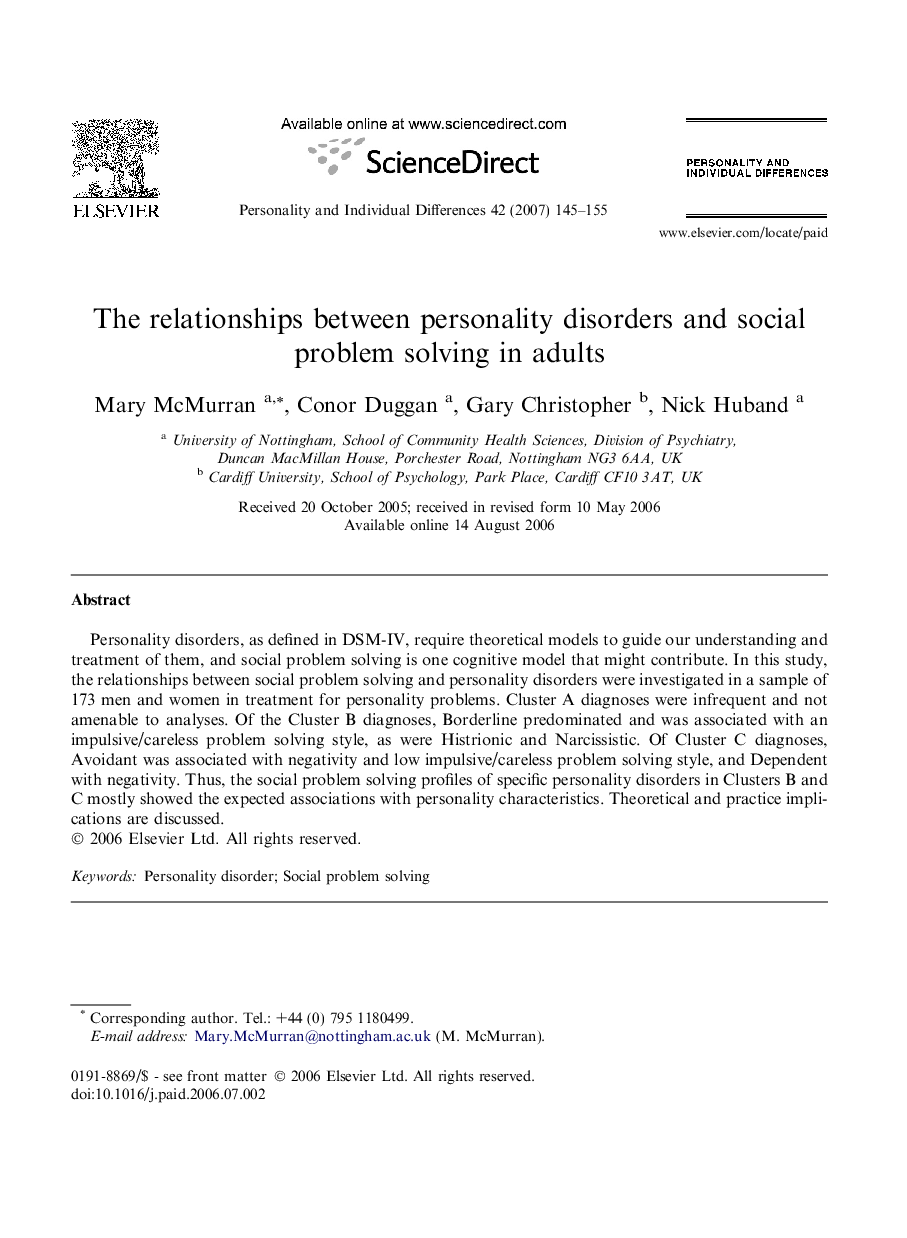| Article ID | Journal | Published Year | Pages | File Type |
|---|---|---|---|---|
| 893284 | Personality and Individual Differences | 2007 | 11 Pages |
Personality disorders, as defined in DSM-IV, require theoretical models to guide our understanding and treatment of them, and social problem solving is one cognitive model that might contribute. In this study, the relationships between social problem solving and personality disorders were investigated in a sample of 173 men and women in treatment for personality problems. Cluster A diagnoses were infrequent and not amenable to analyses. Of the Cluster B diagnoses, Borderline predominated and was associated with an impulsive/careless problem solving style, as were Histrionic and Narcissistic. Of Cluster C diagnoses, Avoidant was associated with negativity and low impulsive/careless problem solving style, and Dependent with negativity. Thus, the social problem solving profiles of specific personality disorders in Clusters B and C mostly showed the expected associations with personality characteristics. Theoretical and practice implications are discussed.
